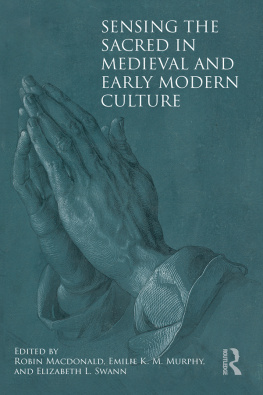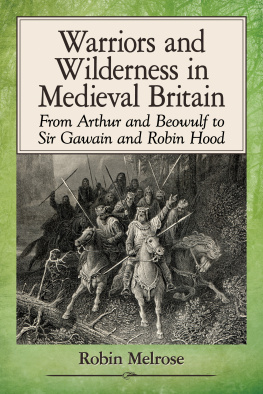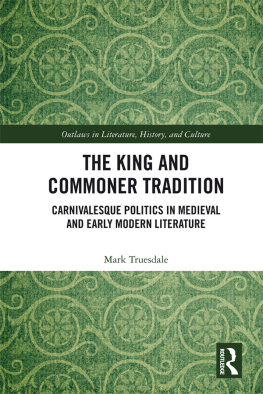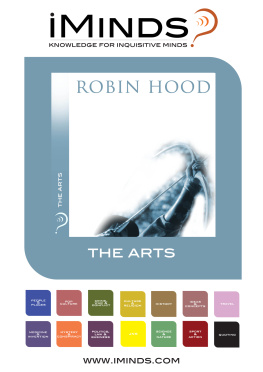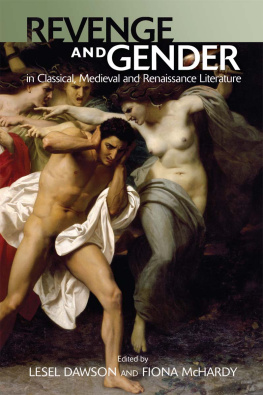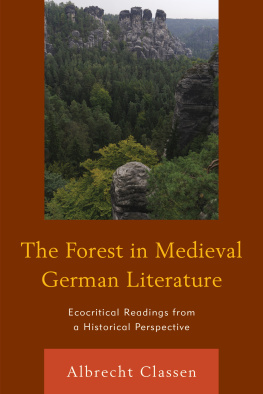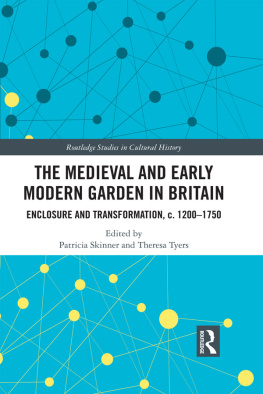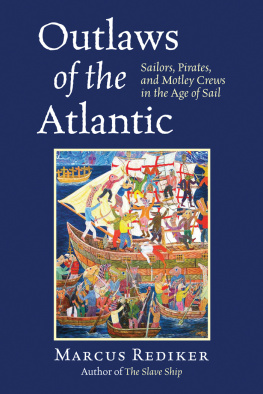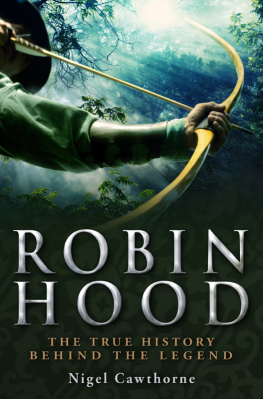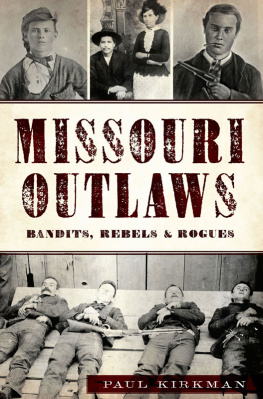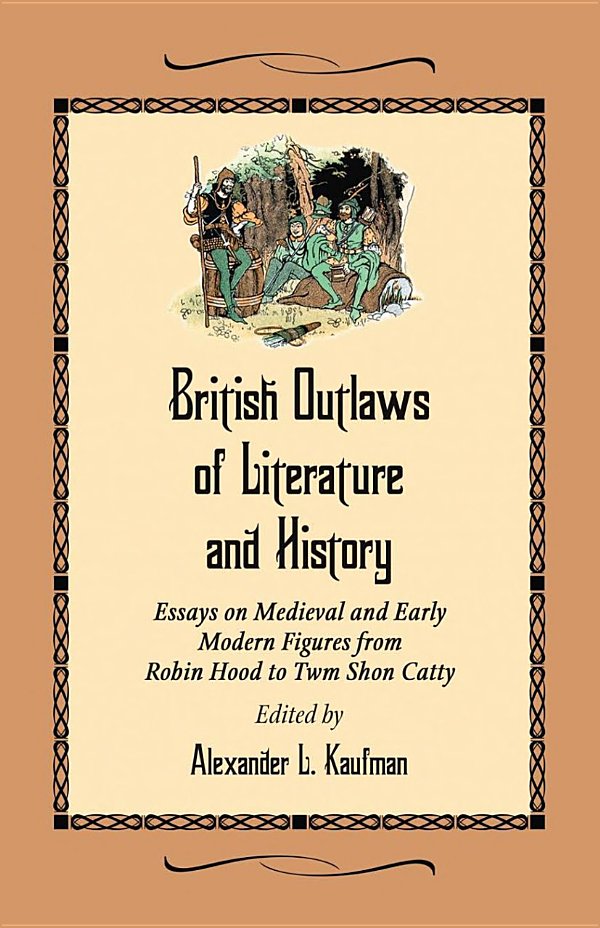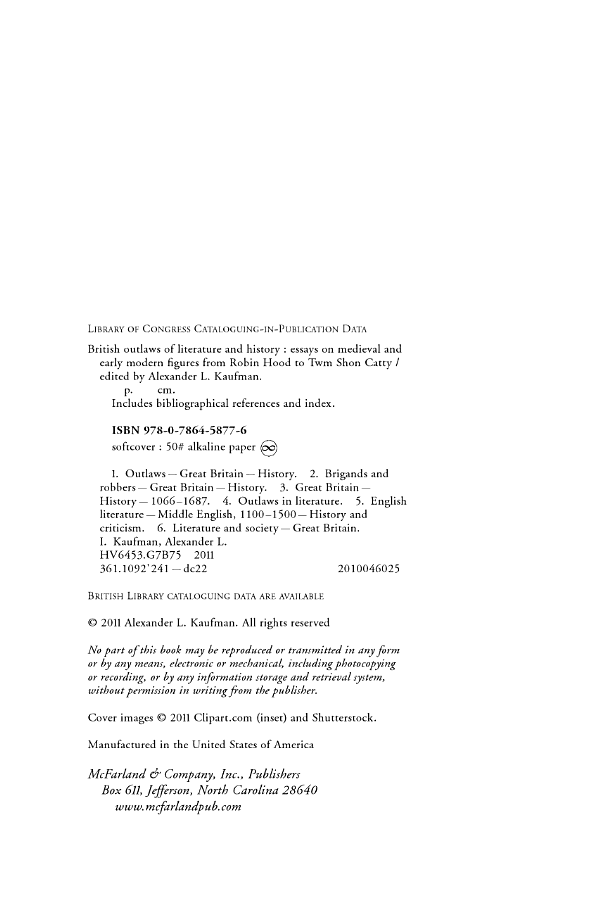For Pauline Freedman
Acknowledgments
My greatest thanks goes to David Hepworth. David was an early champion of this collection; he read a number of these essays and gave helpful and insightful comments on them. The contributors themselves deserve a special amount of praise for their knowledge, scholarly advice, and patience. Several of these essays were presented in different forms at some of the recent International Association for Robin Hood Studies conferences, and a great deal of thanks is given to those who have organized these meetings: Richard Firth Green, Helen Phillips, Lois Potter, Stephen Knight, and Thomas Hahn.
I would also like to thank the greater community of the IARHS for their collegiality and scholarly advice over the years. Thomas H. Ohlgrens support and guidance has been, as usual, second-to-none. Thanks are also due to Edward L. Risden and Kevin J. Harty for their helpful advice on the collection.
At Auburn University at Montgomery, I would like to thank my fellow colleagues in the Department of English and Philosophy, especially my fellow medievalist, Michel Aaij. The faculty and staff at AUMs Library have been instrumental in the completion of this project, especially Karen Williams, the fearless head of Interlibrary Loan. Lastly, I would like to thank my little band for their love and support: Mandy, Cindy, and Abraham.
Abbreviations
Burgess Glyn Burgess, ed. and trans., Two Medieval Outlaws: Eustace the
Monk and Fouke Fitz Waryn (Cambridge: D. S. Brewer, 2009).
Conlon Denis Joseph Conlon, ed., Li Romans de Witasse Le Moine: Roman
du treizime sicle. dit daprs le manuscrit, Fonds Franais 1553, de la Bib-
liothque Nationale, Paris. University of North Carolina Studies in Romance
Languages and Literatures 126 (Chapel Hill: University of North Carolina
Press, 1972).
Dobson and Taylor R. B. Dobson and J. Taylor, ed., Rymes of Robin Hood:
An Introduction to the English Outlaw (London: Alan Sutton, 1989).
EETS Early English Text Society
Hahn Thomas Hahn, ed., Robin Hood in Popular Culture: Violence, Trans-
gression, and Justice (Cambridge: D. S. Brewer, 2000).
Hathaway E. J. Hathaway, P. T. Ricketts, C. A. Robson, and A. D. Wilshere,
ed., Fouke le Fitz Waryn. Anglo-Norman Text Society, 2628 (Bristol: Basil
Blackwell, 1975).
Holt J. C. Holt, Robin Hood, rev. ed. (London: Thames and Hudson, 1989).
Keen Maurice Keen, The Outlaws of Medieval Legend, rev. ed. (London and
New York: Routledge, 2000).
Kew, NA Kew, National Archives
Knight 1994 Stephen Knight, Robin Hood: A Complete Study of the English
Outlaw (Oxford: Blackwell, 1994).
Knight 1999 Stephen Knight, ed., Robin Hood: An Anthology of Scholarship
and Criticism (Cambridge: D. S. Brewer 1999).
Knight 2003 Stephen Knight, Robin Hood: A Mythic Biography (Ithaca and
London: Cornell University Press, 2003).
Knight and Ohlgren Stephen Knight and Thomas Ohlgren, ed., Robin
Hood and Other Outlaw Tales. TEAMS Middle English Texts (Kalamazoo:
Medieval Institute Publications, 2000).
MED Middle English Dictionary. Part of the Middle English Compendium.
Ann Arbor: The University of Michigan, 2001. http://quod.lib.umich.edu/
m/med/ (accessed January 17, 2010).
MLN Modern Language Notes
n.s. New Series
Ohlgren 2005 Thomas H. Ohlgren, ed., Medieval Outlaws: Twelve Tales in
Modern English Translation, rev. ed. (West Lafayette: Parlor Press, 2005).
Ohlgren 2007 Thomas H. Ohlgren, Robin Hood: The Early Poems, 1465
1560: Texts, Contexts, and Ideology (Newark: University of Delaware Press,
2007).
Phillips 2005 Helen Phillips, ed., Robin Hood: Medieval and Post-Medieval
(Dublin: Four Courts Press, 2005).
Phillips 2008 Helen Phillips, ed., Bandit Territories: British Outlaw Tradi-
tions (Cardiff: University of Wales Press, 2008).
PMLA Publications of the Modern Language Association of America
o.s. Original Series
Introduction
Alexander L. Kaufman
The aim of this collection is to assemble a series of essays on outlaws that contextualize the figures within their literary, historical, and cultural contexts. In doing so, the essays explore the fluid nature of outlawry as a term and a practice, examine the political implications of outlaws on the monarchy and local governments, and discuss how these outlaw narratives fit within the much larger context of early British literature and culture. While many of the outlaws that make up this volume are separated by centuries, this volume examines the many commonalities that exist between the narratives and their main characters, themes, and motifs. Several essays within this volume continue within the tradition of what some scholars might identify as the new historicism or new philology. While I myself am a bit uneasy at placing labels on modes of scholarly criticism, nevertheless, these are two scholarly trajectories that remain central to medieval studies and to the sub-genre that is the focus of this collection of essays: the Matter of the Greenwood. Maurice Keen, in his seminal work on medieval outlaw narratives and their interconnectivity The Outlaws of Medieval Legend, argues for a fourth matter that is to join the matters of Britain, France, and Troy. For Keen, the outlaw narratives of the Middle Ages share certain commonalities; they are in essence the same stories, merely associated by different authors with the name of a different hero.1 The forest becomes for the literary outlaws not a place of menace and danger but instead a safe-haven, a sanctuary, and an asylum from the tyrrany of evil lords and a corrupt law.2 However, it should be underscored that Keens outlaws were creatures of fiction. And while Hereward and Fouke Fitz Waryn existed, their outlaw narratives tend to minimize the harsh realities of outlaw life in the wild woods.
While forms of popular culture today often portray the life of outlaws through a romantic lens, the life of an outlaw in medieval Britain was one that was nasty and hard. As Keen comments, a sentence of outlawry put the condemned outside the protection of the law of Britain. As an outcast from society, he (and sometimes she) was denied the ancient inherited privileges at law and was marked as civilly dead.3 Moreover, until the thirteenth century, an outlaw could be killed outright without any repercussions. Even if one were inlawed, that individuals property and goods forfeited at the time of outlawry may not necessarily be recovered:
If anyone has been duly outlawed and later restored to the peace by royal favour, neither he nor his heirs may on that account recover from their lord any inheritance which he had, except by grace and favour of the lord; for the lord king does not wish, when pardoning wrongdoing and outlawry, to infringe thereby on the rights of others.4
Thus, even once an outlaw was brought back into the protection of the realm, the stigma of once being outlawed was still very much a presence that was attached to the individual.
As an outlaw, one was certainly a transgressor of the laws of the land. However, there were others in medieval Britain who transgressed (or who were identified as transgressors) who were similar in their actions to outlaws but not necessarily named as such by the courts. Eric Hobsbawms model of the social bandit is one where the scholar identifies a particular type of criminal. For Hobsbawm, social bandits are considered by their people as heroes, as champions, avengers, fighters for justice, perhaps even leaders of liberation, and in any case as men to be admired, helped, and supported.5 Hobsbawms social bandit is a product of civil unrest within the boundaries of agrarian societies. The medieval period was a time of marginalized individuals, and outlaws were certainly among those who were moved toward the background of the human experience, mostly by their own doing. Like the peasants of Chaucers Canterbury Tales, who are almost always on the periphery of the tales and the pilgrimage, outlaws, too, are some of the more silent witnesses to the medieval period.


